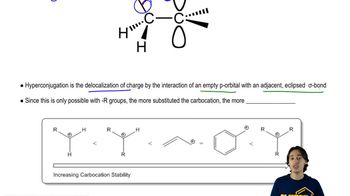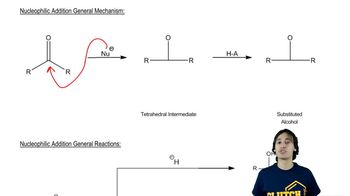Textbook Question
Rank the following carbocations in each set from most stable to least stable:
a.

 Verified step by step guidance
Verified step by step guidance Verified video answer for a similar problem:
Verified video answer for a similar problem:



 5:58m
5:58mMaster Determining Carbocation Stability with a bite sized video explanation from Johnny
Start learning